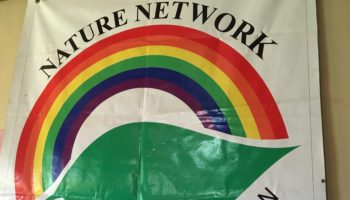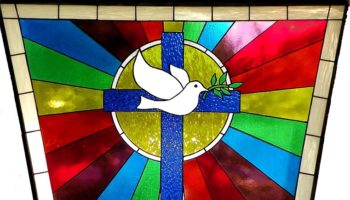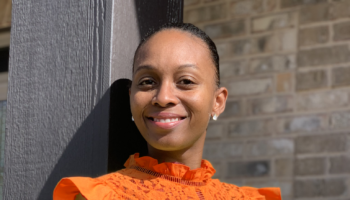I’m Anna Rowlands and I am an academic based at Durham University, UK. I work in the area of Political Theology and have been involved for the last ten years in researching refugee policy and forced migrant experiences. I got involved with this following a life-changing experience volunteering at an immigration ‘reception’ centre near where I was living (at that time) in the South East of England. I was volunteering in a personal capacity, helping with chapel services, visitingdetainees and seeking to offer some human contact with the local community. I was deeply affected by this experience and as a result became involved in grassroots community organizing, working eventually alongside the 2010 coalition government seeking an end to the detention of children and families for immigration purposes. This was a – not altogether successful – experience of learning how to bring together my academic interests in theological ethics, activism and public policy work. Nonetheless, what I saw and heard convinced me that migration is, and will continue to be, one of the key social realities and challenges facing our generation.
Over the course of the last decade immigration has become a massively politicized issue in Europe and North America and new conflicts have caused massive displacement of peoples. Religion, religious belief, and faith-based humanitarian action have become central to the ‘story’ of contemporary migration, as well as to the increasingly political ‘story’ we tell ourselves about migration and the nation-state. I am currently pursuing two main projects addressing questions of religion and forced migration – the first is a 4 year AHRC/ERSC funded project that we have called ‘Refugee Hosts’ (www.refugeehosts.org). We are looking at conflict displacement from Syria into Lebanon, Turkey and Jordan and the role of local communities in refugee ‘hosting’. Often this hosting can involve previous generations of refugees hosting a new generation of refugees. Our Principal Investigator (lead researcher) for the project Professor Elena Fiddian-Qasmiyeh has written widely on the gender-based challenges facing refugees, and our project administrator is pursuing groundbreaking research on the experience of LBGT refugees. We have a great project blog on our website if you want to read more, and also some incredibly powerful poetry written by our poet in residence Yousif M. Qasmiyeh.

My second main project is UK-based and is a partnership with the Jesuit Refugee Service. I’m investigating the experience of asylum seekers in the UK who face destitution, some of whom have also experienced immigration detention as part of their claims process. I’ve interviewed around 30 people who work for and are part of JRS’s day centre for people living in destitution. We’ve talked about the human ‘goods’ (public, private, common) that those seeking asylum see as most important and the ways in which systems either support or frustrate the pursuit of these goods. I asked no formal questions about religion or faith in the interviews, however, all but one interviewee mentioned religion as a key source of resilience and meaning that had sustained them during their asylum process. For many interviewees faith had been tested, changed, found anew, lost and refound. Above all interviewees told me about the ways that their faith traditions offered them texts and narratives that spoke directly to experiences of violence and trauma. The most commonly cited text was Jeremiah 29: as one interview said, echoing many others who cited the same passage, ‘God has a plan for our welfare, a good plan, but it is a plan with unexpected ends.’ Others noted that they were drawn to the Psalms, that they felt they had walked through the valley of death, seen what evil looked like but also known that the presence of God was real for them in this most violent of spaces. The resilience of religious belief itself was a key finding. The interviews had striking echoes of the writing of feminist and self-described ‘indecent’theologian Marcella Althaus Reid who noted in response to her own forced migration experience that she had come to find reading the Psalms as akin to reading ‘letters from our mothers.’ The interviews have also highlighted the extent to which asylum destitution is a profoundly gendered experience, with many women subjected to sexual violence and coercion in order to survivematerially. Women also report the disturbing and difficult ‘choices’ they find themselves making in order to feel more secure whilst living on the streets and sleeping on night buses, attempting to minimise the risk of sexual violence. This work will lead to the publication of a public report on the impact of destitution on the freedom those seeking asylum have to pursue human ‘goods’.
These experiences of moving between research, activism and policy have proved – perhaps inevitably – messy, non-linear and even at times tense processes. But I remain convinced of their necessary co-belonging.






